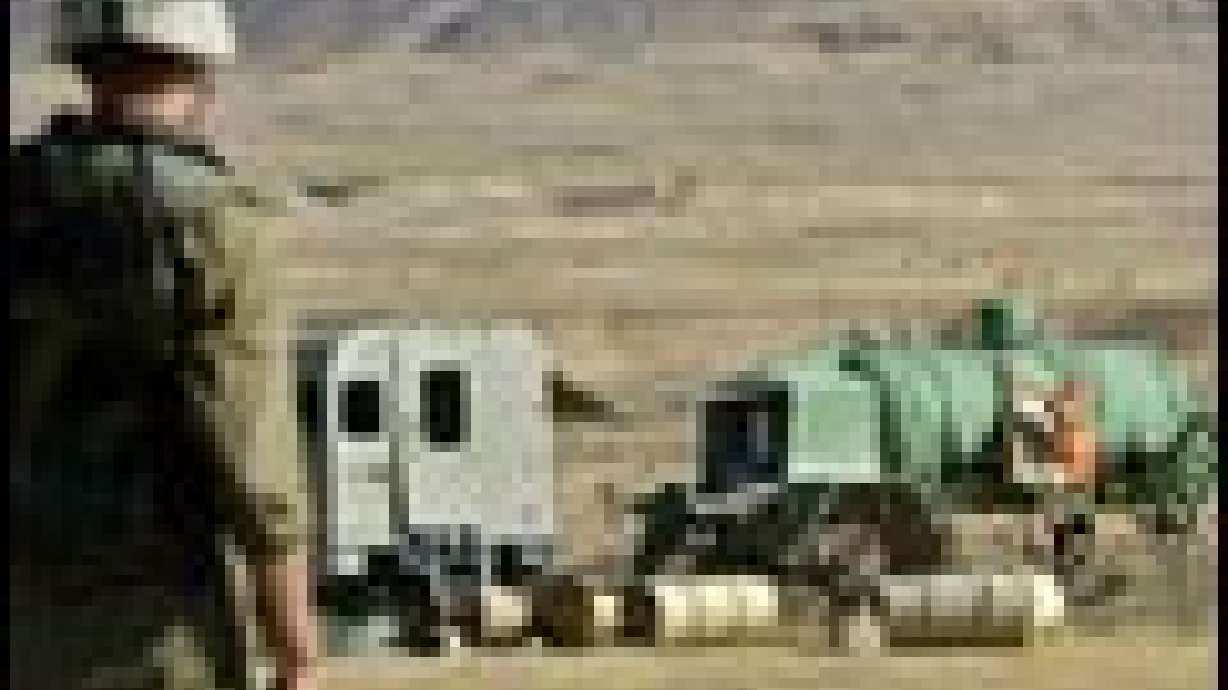Estimated read time: 4-5 minutes
This archived news story is available only for your personal, non-commercial use. Information in the story may be outdated or superseded by additional information. Reading or replaying the story in its archived form does not constitute a republication of the story.
WASHINGTON (AP) -- Saddam Hussein may have possessed weapons of mass destruction and hid them, the chief U.S. weapons inspector says. Or the Iraqi dictator may have had the weapons and moved them outside the country just before the war.
Or perhaps Saddam never had them at all, and just bluffed to appear strong.
Weapons inspector David Kay cited those three theories -- and a few others -- on Friday as possible answers to why his survey team has so far failed to uncover any weapons of mass destruction inside Ir aq.
Iraqis interviewed by his team have provided information pointing to each of those theories, Kay said.
One, more unusual, theory also has some backing, although it's shakier: that Saddam's scientists were fooling Saddam himself -- and were simply too afraid to tell him he didn't possess any weapons, he said.
"Saddam had become so isolated, so the argument goes, that in the last couple of years they consciously told him they were doing things that they in fact were not doing, just to continue to be rewarded by him," Kay said.
One other theory -- that Iraq had arrangements to produce its weapons outside of the country -- has little evidence to support it, he said.
"We have about five to six working hypotheses that we routinely -- actually every Saturday afternoon -- review as to how our data is fitting ... We don't actually have a favorite," Kay told reporters.
His theorizing came as President Bush said the U.S.-led war on Iraq was justified despite the failure to find weapons so far. Bush and Secretary of State Colin Powell both contended that a vial of botulinum bacteria Kay's team found in Iraq is one strong piece of evidence of Saddam's weapons intent.
"The report (by Kay's team) states that Saddam Hussein's regime had a clandestine network of biological laboratories, a live strain of deadly agent botulinum, sophisticated concealment efforts and advanced design work on prohibited longer-range missiles," Bush said before starting a daylong trip to Milwaukee.
But Kay said the vial had been stored for safekeeping in an Iraqi scientist's refrigerator since 1993. He offered no evidence it had been used in a weapons program during the last decade.
Kay also said American weapons hunters had found no evidence that Iraq has recently tried to import a semi-refined form of uranium from the African nation of Niger or anywhere else.
Bush cited that claim in his State of the Union address in January, although administration officials later acknowledged it was based on shaky intelligence and should not have been included.
Kay's search teams did locate documents suggesting another country in Africa -- which Kay refused to identify -- had offered uranium to Iraq, although it does not appear the deal went through. "We don't have any evidence it moved beyond what was probably an unsolicited offer," Kay said.
He also said many scientists are still afraid to work with the Americans because of security concerns, noting that two scientists working with U.S. officials had been shot -- one fatally -- by unknown assailants since the war.
"It's true, two who have collaborated with us, one has been assassinated after literally hours after meeting with one of the ISG (Iraq Survey Group) officers. Another took six bullet wounds and it's amazing to me that he is still alive," Kay said.
Powell, in citing the discovery of the vial of bacteria and signs of long-range missile plans, said he is "more convinced by the Kay report that we did the right thing."
"Do you think vials of botulism should constitute a weapon of mass destruction?" Powell asked reporters. " ... They never lost that capability. They never lost that intent."
State Department spokesman Richard Boucher added: "You kill people with botuli. They have no other use."
The Iraqi scientist who had the vial had been given it for safekeeping at his home by another, more senior scientist, in 1993, Kay said. The scientist initially had other samples, most of which he quickly returned because of concerns for his family's safety.
"He was actually storing them in his refrigerator," Kay said. "He had small children."
Although tests showed that the one vial of bacteria that the scientist kept was still viable, Kay offered no evidence it had been used in a weapons program during the last decade.
The vial contained a live bacteria that make botulinum toxin -- a toxin that can be used as a biological weapon. But experts say there are many, complicated steps between possessing a vial of bacteria and producing enough of the toxin to create a weapon. That would require relatively sophisticated equipment and processing.
The bacteria itself is a common cause of food poisoning.
(Copyright 2003 by The Associated Press. All Rights Reserved.)








